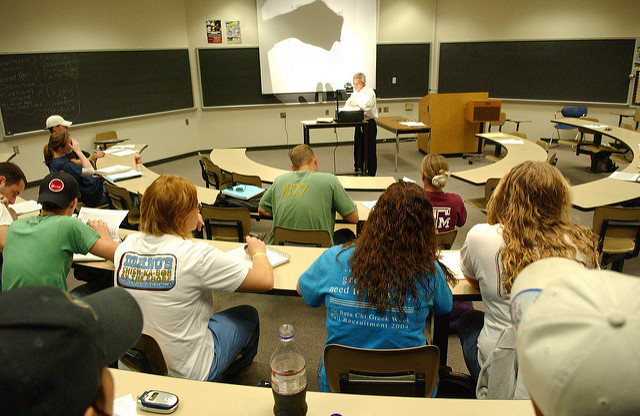October 2016

The higher education system in the US is heavily professor-oriented. It is the professor who frames the syllabus. Depending on latest trends and developments in the industry, the professor might change the syllabus every year or even change it in the middle of the semester if he or she deems it fit. This is very different from how the higher education mechanism works in India and many other nations where the system is highly centralized. There would be one public university to which hundreds of colleges are affiliated. Each affiliated college should follow the syllabus and examination pattern determined by the university. One advantage of going with the professor-oriented approach is that the syllabus can be tweaked according to industry needs whenever appropriate. Also, the professor can decide the best way to test students' knowledge. But this is not possible in affiliation-based systems due to prevalent inefficiencies arising out of the bureaucratic structure.
Another important aspect of the higher education system in the US is the leveraging of technology to make the education experience better for students. Unlike most South Asian countries where learning is still paper-based, there is a touch of technology in every aspect of the teaching-learning process in the US. The class notes are available online and so are the quizzes and assignments. This makes life easier for students and professors, apart from saving of huge amount of paper, thereby helping the environment go greener.
To be continued...
Ramprasath Babu | Management Information Systems